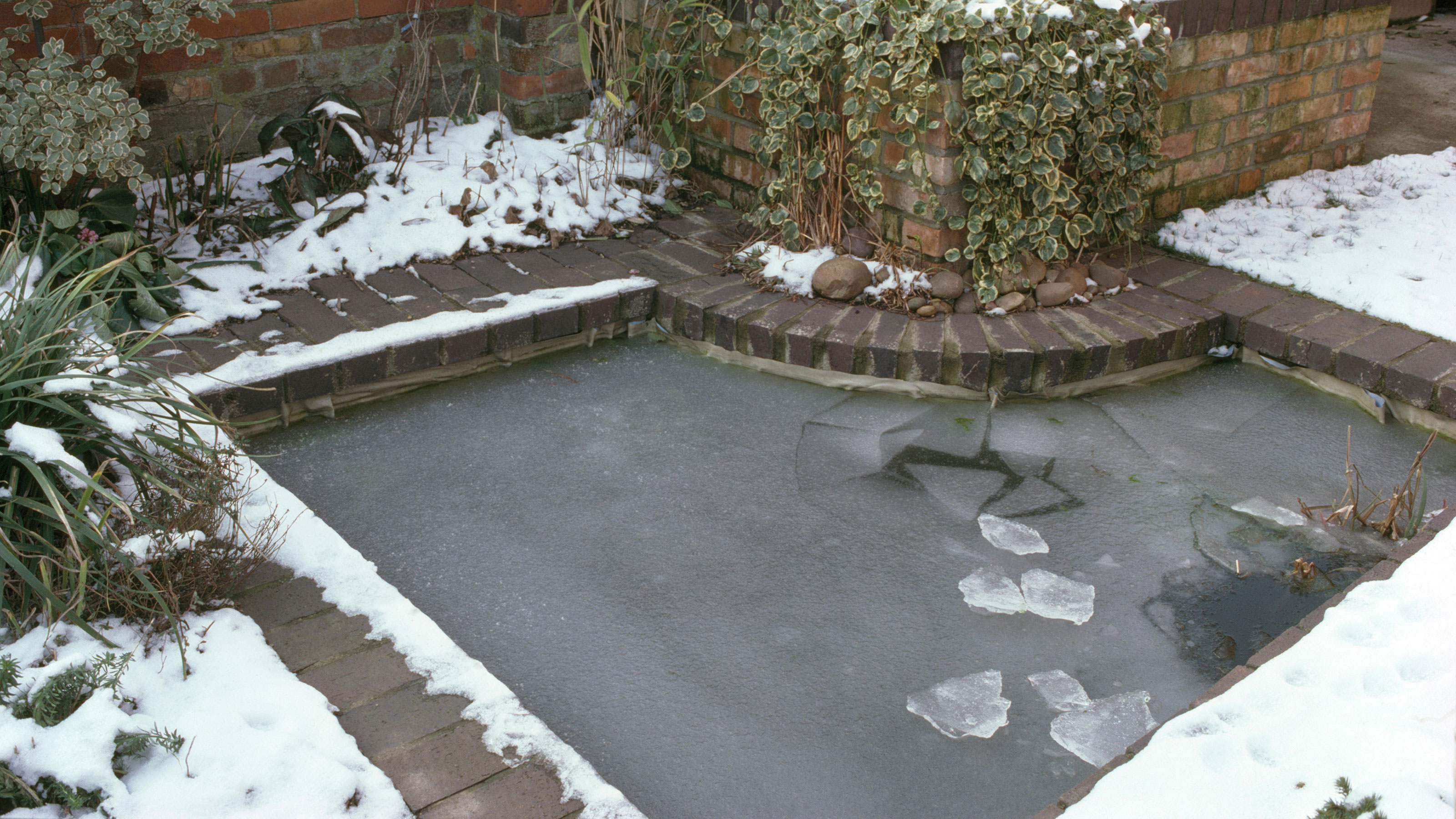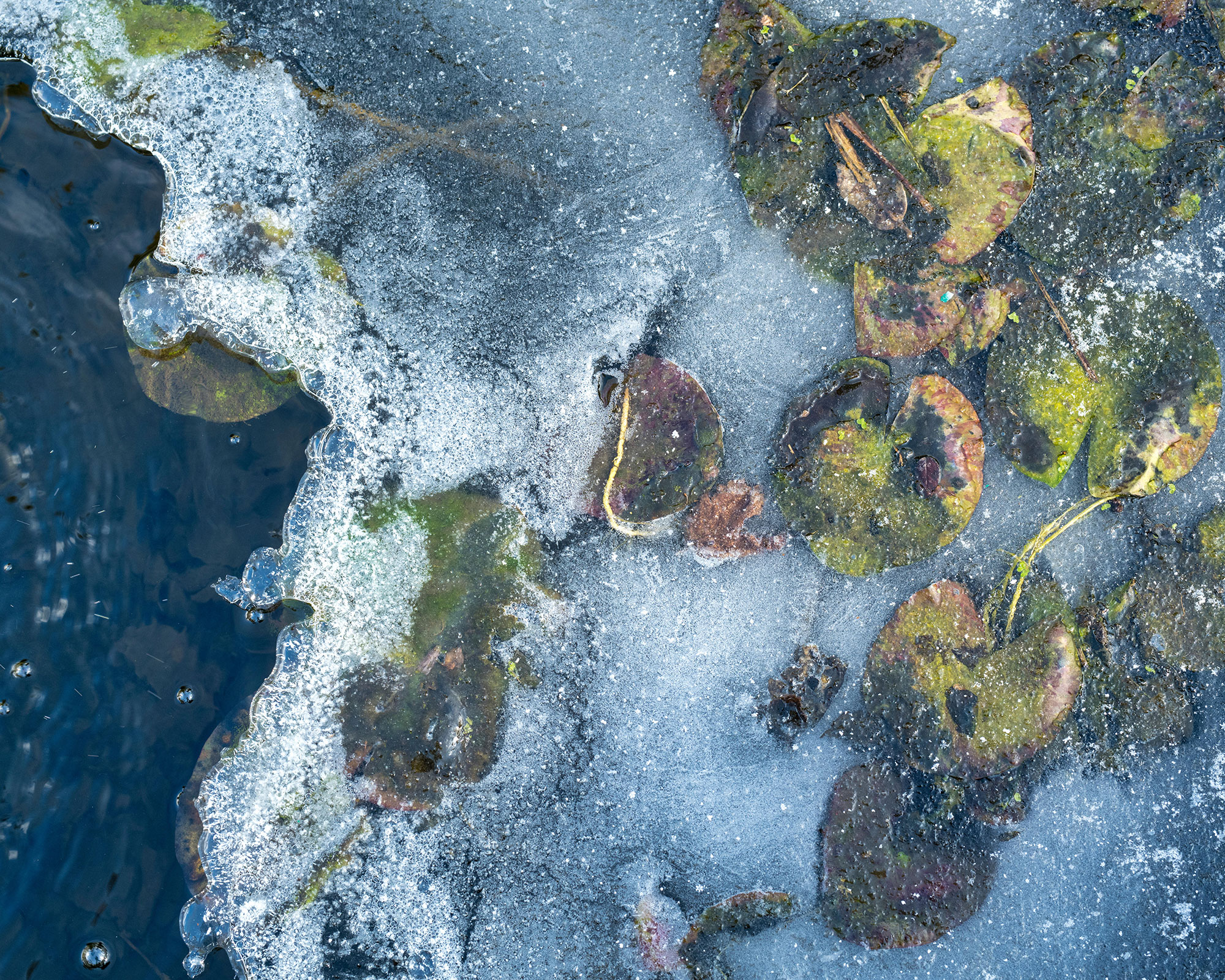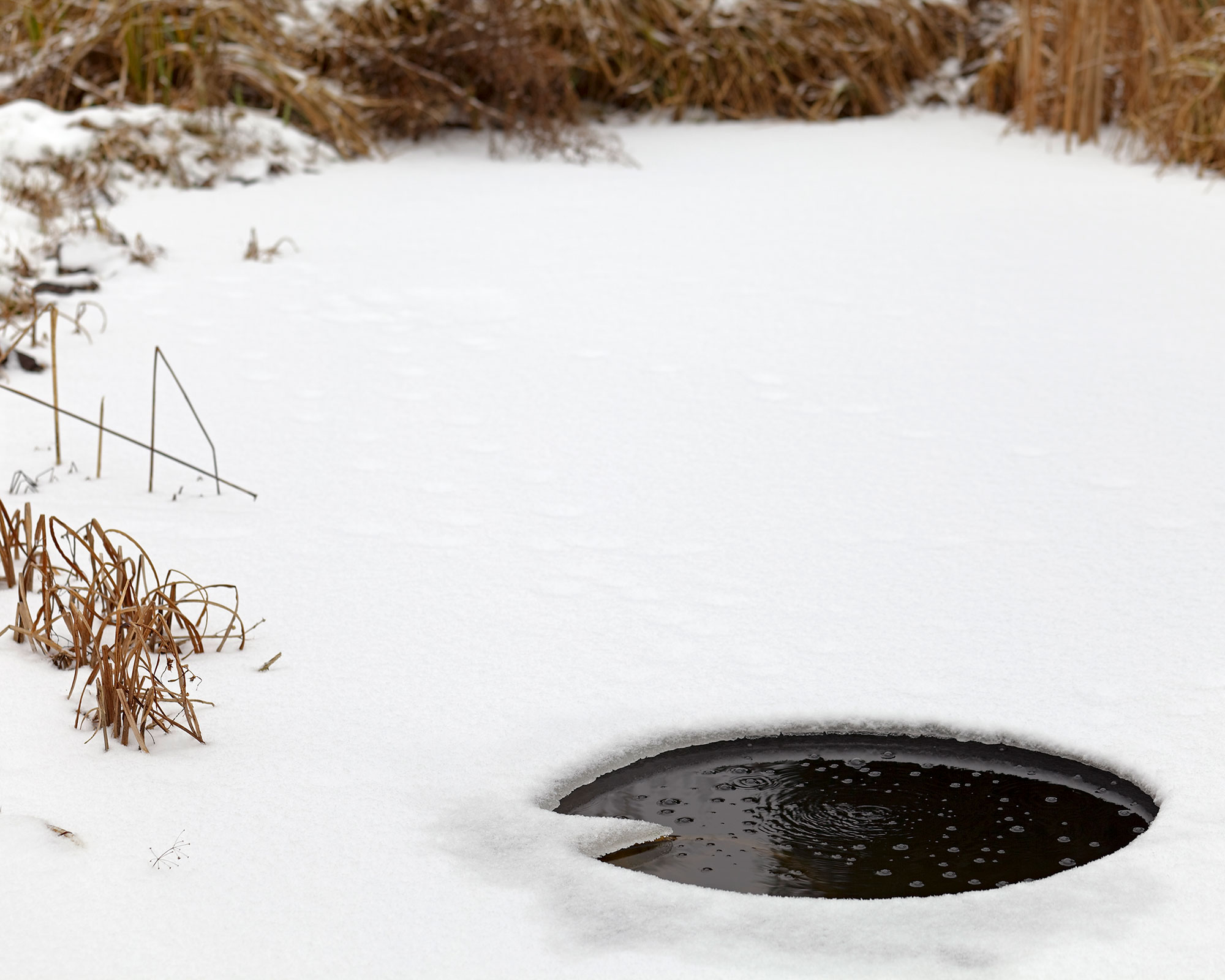Will putting a tennis ball in a pond prevent it from freezing? Experts weigh in on the debate
This handy tennis ball hack is said to help save your fish and wildlife this winter, but do the experts think it's guaranteed to stop your pond freezing?


Keeping fish and encouraging healthy invertebrates in a backyard pond during the cold winter months can be a challenge, as freezing temperatures and ice can be really damaging to aquatic wildlife.
One tip gardeners often share is popping a tennis ball or small beach ball into the water. But does it actually work?
'Many garden pond owners may consider using a tennis ball to prevent their water from freezing over during the winter months, and while it's not guaranteed to work it may still provide some benefit,' says Oberon Copeland, founder of consumer advice website Very Informed.

How does a tennis ball stop a pond from freezing?
A body of water is more likely to freeze if there is no movement in the water. Simply adding a tennis ball to a pond should ensure there is constant water movement thanks to the ball being blown around by the wind, and therefore the pond is less likely to freeze.
Be aware though, that this works best in the confined space of a small backyard pond rather than an impressive larger design. 'In a small pond, the tennis ball will prevent the pond from freezing because it will keep the water moving constantly,' says Lindsey Hyland, founder of Urban Organic Yield. 'In a larger pond, the ball won't have as much of an effect because there is too much water for the ball to move it around efficiently.'

Are there better methods you can use?
Fitting a pump to keep air circulating will definitely help keep the water warmer, and also provide vital oxygen to support aquatic life.
However, gardener Miguel Palma of Jardin Tienda goes one step further when it comes to ensuring toasty water temperature. 'A good thing to do is to add an insulation layer to the outside of the pond, which might be a job for next spring or summer when you’re thinking about how to prepare your pond for winter,' he says. 'However, as a temporary winter measure, you can cover the pond with a tarp or some other type of covering.'

There is lots of advice about how to heat a pond in winter and Jeremy Yamaguchi, CEO of Lawn Love, argues that a tennis ball won't make any difference if the temperature really drops.
'If you really want to prevent your pond from freezing, it's best to use a pond heater or a floating de-icer,' he says. 'These devices are specifically designed to maintain a hole in the ice, allowing gases to escape and oxygen to enter the water. This can help the pond from freezing over completely.' This Farm Innovators floating pond de-icer from Amazon costs around $50, which could be money well spent if it prevents your pond from freezing and keeps your fish alive.
Will you be investing in something like this or sticking with the simple tennis ball trick this winter?

Jayne Dowle is an award-winning gardening, homes and property writer who writes for publications including Sunday Times Home, Times Bricks & Mortar, Grand Designs, House Beautiful and The Spectator. She was awarded the Garden Journalist of the Year accolade at the Property Press Awards in 2021.
